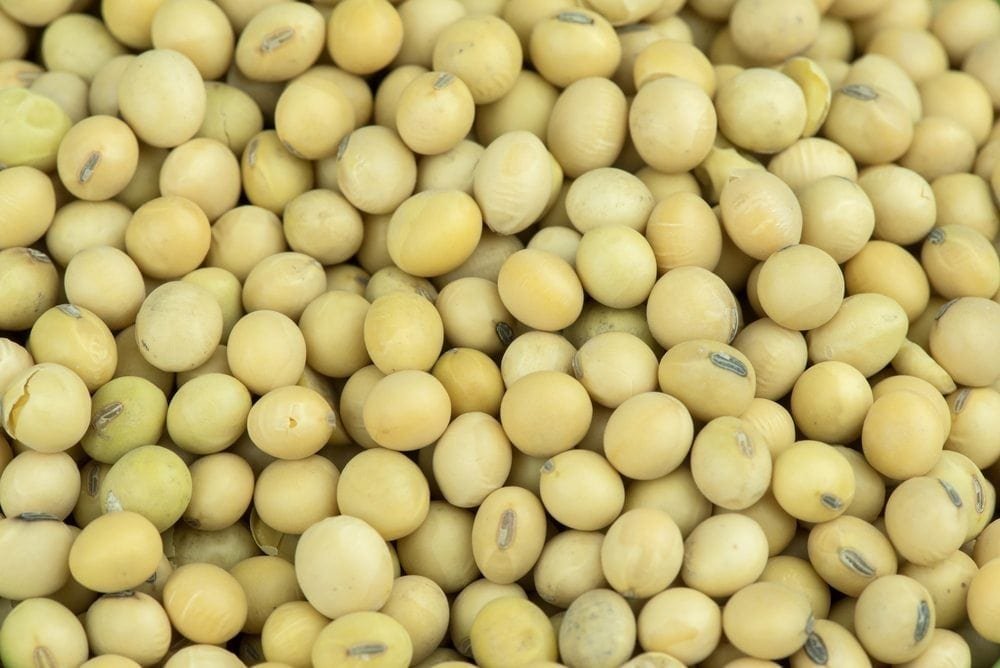Soy is grown in some of the most important areas for biodiversity on the planet. Species under threat include the jaguar, maned wolf and giant anteater among many others. Habitat loss has led to sharp declines in biodiversity: between 1970 and 2010, vertebrate species populations in Latin America fell by 83%, the steepest decline anywhere in the world.
In half a century, the amount of soy produced has increased tenfold. Soy farms now cover over 1 million square kilometres – equivalent to the total area of France, Germany, Belgium and the Netherlands combined. The area of South America devoted to soy grew from 17 million hectares in 1990 to 46 million hectares in 2010, mainly on land converted from natural ecosystems, and it continues to expand.
The many uses of soy
Three-quarters of soy is used to feed animals, mostly as soy meal. On average, European consumers eat 61kg of soy per year, most of it in the form of animal products like chicken, pork, beef and farmed fish as well as eggs, milk, cheese and yoghurt.
Soy can also be used as soy oil, in margarines and many baked and fried products, as well as in other consumer goods like soap and cosmetics. You’ll find soy derivatives, like the emulsifier lecithin, in countless processed foods, too – from chocolate to salad dressing.
‘Many Europeans still don’t know that they eat on average 61 kilos of soy per year, mostly embedded in their meat and dairy products, and what impact irresponsible soy production can have on the ecosystems of South America. In most cases, consumers have no proof that the products they eat do not include deforestation.’
SANDRA MULDER
Senior Advisor Market Change, WWF
Only about 6% of the soy grown globally is consumed directly as whole beans used to make products like soy burgers and tofu. Another small – but increasing – proportion is used as oil for biodiesel.
The scorecard
The Soy Scorecard assesses 133 leading European retailers, food service companies, consumer goods manufacturers, dairy companies, meat, egg and feed companies on actions related to sourcing responsible soy and eliminating deforestation from the animal products they sell. The companies are based in Belgium, Denmark, Finland, France, the Netherlands, Poland, Sweden, Switzerland and the UK.
Increasing meat consumption is the main driver of soy expansion; around 93% of the soy going into Europe is used for animal feed. Over recent decades, soy has undergone some of the greatest expansion of any global crop. In total, the area of land in South America devoted to soy grew from 17 million hectares in 1990 to 46 million hectares in 2010, mainly on land converted from natural ecosystems.
In the meantime, relevant efforts were made by joint initiatives of soy producers and traders to reduce this impact, most notably the Soy Moratorium, which reduced the deforestation caused by soy in the Amazon to almost zero during the last decade, while Amazonian soy production doubled in the same period, on already deforested areas.
Click here for the full results of WWF’s Soy Scorecard.
 Play Video about This Rock Might Just Save The World
Play Video about This Rock Might Just Save The World Play Video about Play 2 hours of rock
Play Video about Play 2 hours of rock Play Video about Play 2 hours of brook
Play Video about Play 2 hours of brook Play Video about Play 2 hours of sheep
Play Video about Play 2 hours of sheep











































